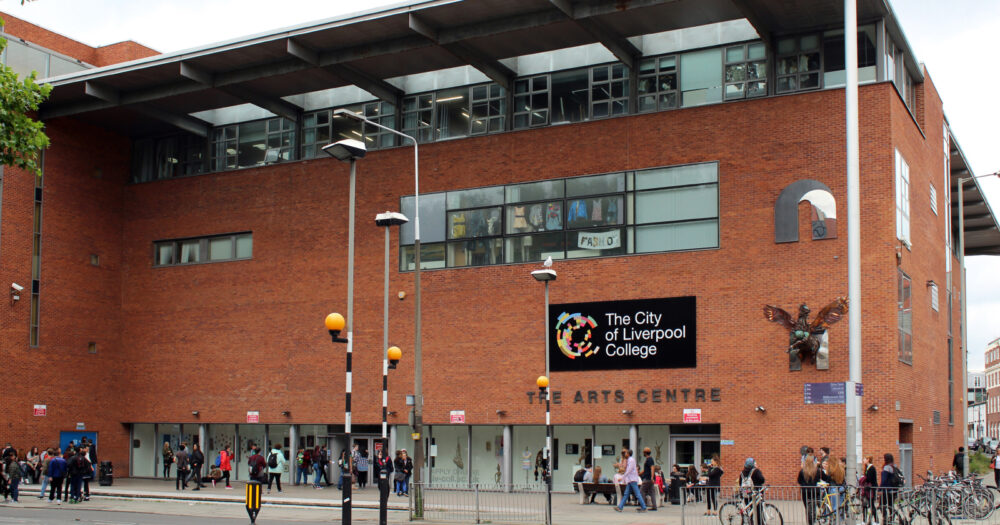Two college managers who were “pressured” to accommodate special provisions for a relative of the principal in an understaffed department were unfairly dismissed after “falling out of favour”, a tribunal has ruled.
A judgment published this week found in favour of two ex-staff members of the City of Liverpool College who felt they were forced to resign after facing significant pressures to make special arrangements for a relative of principal Elaine Bowker.
The three-year-long battle with the college resulted in a win for Stephanie Doyle and Kerry Dowd, who were employed as the head and deputy head of the college’s digital academy (DA) nearly four years ago.
The tribunal accepted the allegations that the principal expected the pair to give “preferential treatment” to her relative, who was enrolled on a course at the DA.
The staff members “fell out of favour” with Bowker who made “bespoke requests” on behalf of the student which were interpreted by staff as instructions from their principal.
College bosses later “put pressure” on Doyle and Dowd to resign after being suspended over alleged safeguarding concerns the tribunal found not to be genuine.

Doyle told FE Week she and Dowd were “relieved” but “traumatised” over the whole ordeal.
“I was asked to manage a school with a blindfold on and my hands tied behind my back. It felt very planned, and I could see what was happening.”
The claimants said they are seeking “substantial” compensation at a remedy hearing later this year.
In a statement, the college said “there were a number of inaccuracies” in the court’s judgment “linked to key information” and are taking advice for an appeal.
“As a result, the college is seeking legal support to help review and advise on next steps, which may include appointing counsel and submitting an official appeal.”
Bespoke provision for family member
The complaints against the college started in May 2021, when the college conducted a quality assurance visit to the DA, which found some areas for improvement as well as “complementary comments” about Doyle and Dowd’s performance as leaders.
The tribunal judgment also noted senior managers were aware of the DA was understaffed but did not approve hiring requests until after the 2021-22 academic year started.
Meanwhile, the college was cutting courses with low enrolment numbers. One course in scope to be cut was a level 3 coding programme, but this was retained even though it had one enrolment: a student who was a relative of Bowker.
Doyle was called into a meeting to discuss running the course, which the tribunal found would not have happened for other students in similar circumstances.
The two heads were instructed to continue the course and assigned one teacher to the principal’s relative, creating “bespoke provision”.
Bowker emailed the senior leadership from her college email account complaining about her relative’s experience in the DA, who was struggling on the course.
As a result, Doyle and Dowd found themselves “falling out of Ms Bowker’s favour”.
The tribunal also heard that no one in the senior leadership team was able to speak openly to Bowker about the DA’s staffing issues or the correct procedure for complaints.
The judge noted that the college’s witnesses during the hearing, including senior leadership and governors, were “unusually stressed” when giving evidence, visibly shaking, perspiring and flushing bright red.
“Witnesses may be nervous at the start of giving their evidence, but it is unusual for them to suddenly become visibly nervous in response to a particular line of questioning,” the ruling said.
Following Bowker’s intervention, a personalised timetable for one-to-one tuition was created for the student despite “chronic staff shortages”.
“We find that Ms Doyle did this as she understood that the consequences for her of falling out of favour with Ms Bowker would have been significant,” the judge said.
Doyle said: “It was heartbreaking because there were students with no teacher in front of them, and there was literally nothing I could do.”
Shortly after, the DA was subject to another “deep dive” quality visit and a proposed “curriculum transformation” which the judge accepted caused the two academy heads to feel “ever-increasing pressure” by senior leadership.
“We had an idea that we were being pushed out because the pressure was just coming in thick and fast,” Doyle added.
No evidence of ‘genuine’ safeguarding concerns
Doyle and Dowd were off sick from December 2021. In the new year, the college suspended the two women claiming to have found a “potential safeguarding concern”. They were suspended for alleged gross negligence over quality standards and inaccurate registers.
But the tribunal found no evidence of “genuine” safeguarding concerns as the college never took steps to “properly” investigate the matter.
“[The college] never genuinely believed that there was a real risk of safeguarding failures and that HR included this in the suspension letter in order to put pressure on the claimants to resign,” the report said.
The college’s HR department told the pair they would give them a clear employer reference excluding safeguarding breach if they resigned within 24 hours.
Both staff members resigned immediately as they said the safeguarding threat would not allow them to get a job in education again.
A spokesperson for the college said: “The safety and well-being of all students is of paramount importance at The City of Liverpool College. The college takes great pride in providing effective, secure, and high-quality learning environments for thousands of students who choose to learn and develop here. The college takes its governance and duty of care very seriously, as evidenced by a positive Ofsted inspection in 2024.
“In relation to the recent legal case, a potential safeguarding issue regarding the falsification of an attendance register was identified, logged and subsequently, investigated.
“The college takes such claims very seriously; registers are legal, auditable records used to evidence attendance and support student welfare.
“The falsification of this official documentation was deemed as a potential safeguarding issue and as such, the college’s HR processes and procedures were subsequently duly followed.”

















Quite damning. I bet it’s not the only case like it at the college either. Looks to me like the Principal has been abusing her power. Surely the Board will need to tackle her conduct in this case and investigate it further. It smacks of gross misconduct to me.
This sounds like the usual management BS. What a mess and how much will the college pay out to the members of staff? Hopefully the maximum.